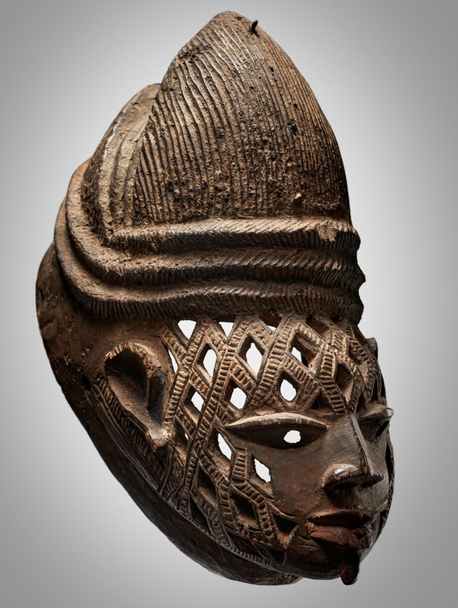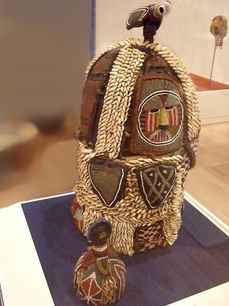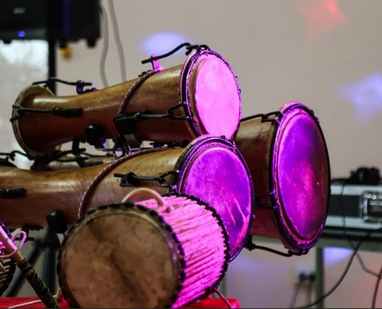
support@yorubalibrary.com
+2348073529208, 07038599574

The Olu-Oje family, also known as the Oloje family, is one of the distinguished lineages in Yorubaland. This family name carries history, identity, and ancestral prestige that showcasing both authority and cultural importance. For the Yoruba people, the Olu-Oje lineage represents the unbroken chain of heritage, tying the present generation to the wisdom and traditions of their forebears.
For descendants, being part of the Oloje family is a source of dignity. For learners and admirers of Yoruba culture, this family shows how Yoruba society preserves customs, assigns sacred roles, and transmits responsibility from one generation to another.
Origins of the Olu-Oje Lineage
The Olu-Oje lineage has its roots in Yoruba land, where its ancestors were recognized for their unique cultural and spiritual roles. The title “Oloje” itself carries respect and recognition, pointing to a family that has been entrusted with both authority and ancestral guardianship.
To access deeper knowledge about the ancestral origins of the Olu-Oje family, kindly share your interest in the comment section. This helps us know how many readers are truly engaged in Yoruba heritage.
Cultural Role of the Olu-Oje Family
The Olu-Oje family has historically been associated with leadership, sacred duties, and influence over community traditions. Members of this family have been known to:
• Safeguard important rituals and customs.
• Provide counsel in matters of culture and governance.
• Serve as custodians of Yoruba ancestral identity.
These roles show how the family is embedded in Yoruba history and how it continues to inspire today.
Oríkì of the Olu-Oje Family
The Oríkì of the Olu-Oje lineage is powerful and filled with ancestral honor. It is a poetic way of praising the family’s strength, achievements, and cultural importance. Find below the original eulogy of Olu-Oje descendants.
Oluoje, meri ate, omo apaja fun won ranwo.
Ela mo ko ngo gbodo jeye ega.
Omo afinju oloja lode Oje.
Olu oje omo a rohun ogun, baara fagbe.
Omo afinju eiye ti nmumi lagbada.
Olugbo rere lohunlodo, ile wani.
Komoodan l’odo tebi.
Omo orogangan laa fohun odo f’odo.
Oro gangan laa fohun odo f’odo.
Omo Orogangan laa to’do l’Ompetu.
Omo aparun jegede eti Yemetu.
Kaka ki nlaya ki nsina ebi.
kaka ki nlaya kiin si’na oje.
mei b’opopo ile wa l’opopo ikefun.
Taboos (Èèwò) of the Olu-Oje Lineage
Like every Yoruba family, the Olu-Oje lineage has ancestral taboos (èèwò) that must never be broken. These taboos act as spiritual boundaries and cultural laws that protect the family’s destiny.
To discover the specific taboos of the Olu-Oje family, kindly drop a comment about what fascinates you most about this lineage, and we will share the details with you directly.
Why Oríkì Matters in Yoruba Culture
In Yoruba tradition, Oríkì is a living link between the past and the present. It does not only praise a person or family; it preserves their history and identity. For the Olu-Oje family, the Oríkì is both an honor and a reminder of the duties passed down by the ancestors.
By reciting the Oríkì, descendants strengthen their connection to their roots, and outsiders are given a window into the greatness of the family.
Unique Facts About the Olu-Oje Family
• The family is associated with certain cultural practices that distinguish them from other lineages.
• Some rituals connected to the Olu-Oje name are still regarded as sacred today.
To know more about these unique practices, kindly share your thoughts in the comment section.
Conclusion
The Olu-Oje (Oloje) family stands as a pillar of Yoruba heritage, representing leadership, spirituality, and ancestral continuity.
Need more? Browse through our Oriki Gallery today, at zero cost.

Learn about the Ajero family in Yoruba land—their …

Complete insight about the Alara family in Yoruba …